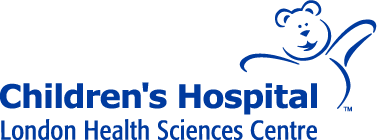Baby Blues, Postpartum Depression and Anxiety Disorders
About 4 out of 5 mothers experience the baby blues. The baby blues are general feelings of sadness, feeling tired and teary. It usually starts 1-3 days after the birth. Most mothers will feel better within two weeks. Talk with your partner, your health provider or someone you trust.
Postpartum depression and anxiety disorders are common. About 13% of new mothers experience postpartum depression after having a baby. Mood disorders and anxiety are also very common. People experiencing perinatal mood and anxiety disorders may:
- Feel sad or numb
- Be tearful or cry a lot
- Feel exhausted, but not able to sleep
- Have changes in eating or sleeping patterns
- Feel overwhelmed and can’t concentrate
- Feel anxious or can’t stop worrying
- Seek constant reassurance from others or the internet
- Have no interest or pleasure in activities you used to enjoy
- Feel hopeless or worthless
- Feel restless, irritable or angry
- Feel guilty and ashamed
- Avoid spending time with family and friends
If you have thoughts of hurting yourself or others, or have scary thought about your baby please call 911 right away. Or call the Reach Out (24/7 crisis service), call or webchat 1-866-933-2023.
If your symptoms continue or get worse, speak to your healthcare professional.
Additional Information and Resources:
- Visit the Middlesex London Health Unit 'When The Baby Blues Won't Go Away" web page.
- Visit the Caring for Kids 'Depression in pregnant women and mothers' webpage.
How are depression and anxiety treated?
Counseling
- It can be helpful to find a healthcare provider who has experience treating depression and anxiety, and working with NICU families.
Support groups
- These are group of people who meet together or go online to share their feelings and experiences about certain topics.
Medication
- Depression and anxiety are often treated with medicine.
Fathers
It is important to mention that some fathers (around 10%) may also experience depression following the birth of their child. Risk factors for perinatal depression in men include:
- Personal history of depression
- Partner has perinatal depression
- Ongoing work stress
- Previous pregnancy loss
- Marital difficulties
Recommended healthy activities and coping strategies for Dads:
- Embrace fatherhood and participate in all aspects of parenthood
- Spend one-on-one time with your baby
- Read to your baby
- Find someone you can share your emotions with
- Stay connected with friends
- Refuel with a healthy diet and activity level
- Continue at least one of your healthy outlets to reduce stress
- Physical activity – walk, jog, cycle, exercise
- Mindfulness/Meditation
- Home hobby: repair/renew something; cook; complete small project
Speak to your healthcare professional if your symptoms continue or get worse.
Additional Information:
• Visit the Father’s Mental Health website.
• Visit the Dad Central website.



